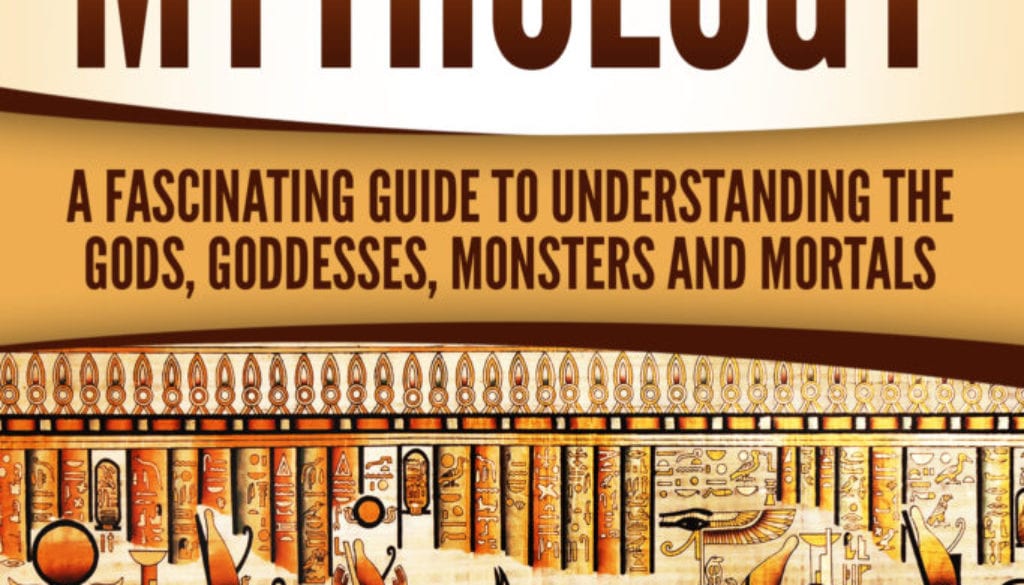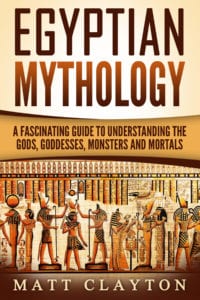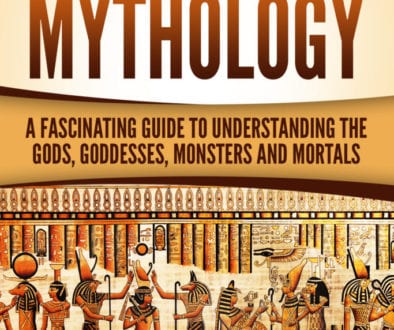Sett: God of Desert, Storms, War, Evil, and Chaos
Sett was not always a bad guy. Originally, he was a member of the Ennead—the council of gods.
After Sekhmet had destroyed most of humanity, Ra had the gods lift Nut (sky) far from the Earth. There, the gods would rule over the world from afar. In order to maintain order locally, however, Ra set Auser (Osiris) as ruler over Kemet and Asett, as his wife, to rule with him.
Sett grew jealous, for even the gods were not above becoming self-centered and selfish. One might wonder if Sett had had too many close calls with Apep. Had he become tainted with Apep’s intent—to subvert order with chaos?
So, throughout all of Egyptian myth, only Apep and Sett may be considered true monsters, for their intent was against that of peace and order, and toward self-concern and selfish need.
Seduced by Power and the Dark Side
A new day had begun. Ra was once again commanding his barge across the sky, towing the image and likeness of the sun to shine its light upon the world below. With him were Maat, the goddess of order, and Tehuty, the god of wisdom and knowledge. At the prow stood Sett, sword at the ready to strike against Apep should the great serpent attempt to interfere.
The sameness of this event made Sett a little crazy. Here he was, perched on the divine barge, doing the same thing over and over again, every day of the year, and every year, one after the other.
Below, he could see the humans and their varied activities. Some were coming together to build their separate civilizations. Sett admired the activity and the consequences of such building. He liked the sense of change and progress.
Then, Sett caught a glimpse of Asett and Auser, ruling over the greatest nation of the world—Kemet. The ribbon of water, which snaked through the desert, glistened as it reflected the sun’s light back up at him and at the other members of the divine barge.
“What is it like to rule?” he wondered. “What is it like to command others and to have them do your bidding?”
And as he wondered, he didn’t see that Apep was circling the barge, looking for an opportunity to strike.
“Sett!” yelled Ra. “What are you doing? Apep has taken a bite out of the sun.”
The younger god blinked several times and looked back toward the sun. Indeed, part of it had already become darkened and in the glare of the light that remained, he could see the shadowy form of Chaos writhing through the sky. Immediately, he struck at the beast, but it would not let go.
The sky became increasingly dark until all of the sun’s light had been snuffed out. Repeatedly, Sett struck at the beast and finally drove his blade into its heart. Slowly, Apep gave up its prize and light returned to the world.
Minutes later, he could see the eternal snake slithering away across the universe.
“Well done, my son,” said Ra. “Again, you have prevailed against Chaos.”
Sett nodded at the praise, but felt empty. Moments before, he had felt his own heart pounding with the excitement of conflict in action. Now, all returned to the sameness of boring order and tranquility.
Why couldn’t I have more conflict in my life? Sett asked of himself. To feel the excitement of a life-threatening challenge.
As Sett mulled over these dark thoughts, his eyes drifted once again down to the Great Hall from where Auser ruled over all of Kemet. “If I had his power, I’d use it to conquer other lands. That would be enough excitement to last several millennia.”
Later, as the day came to its completion, and the divine barge was taken over by the maintenance crews of the night, Sett wandered toward Kemet to pay his brother and sister a visit. The closer he got, the darker his heart became, and the more he resented that they had what he now desperately wanted.
The god of defense had now been seduced by the desire to attack. Halfway to Kemet, he stopped. There, in the bright, starlit desert, he pondered how he might achieve his deepest desires. But betrayal would not be easy. The remainder of the night he spent plotting against his brother and sister.
As the clarion call came for him to return to the divine barge, he looked down at his right arm and felt the blood coursing through his own veins. In his mind’s eye, he could see Apep swimming through his veins, giving his life new meaning.
Over the next several weeks, Sett talked in veiled language to many of the lesser gods and to some of the more powerful humans of Kemet. From his many conversations, he was able to discern the hearts of those who would be willing to help him in his quest for power. Over those many days, he built an army of like-minded who desired change—the same magnitude of change which had turned the universe from a realm of chaos into one of order.
Then, one day, Sett did not show up when the call came to board the barge of the sun.
“Where is Sett?” asked Ra.
“I do not know, my Lord,” replied Tehuty.
“Neither do I,” said Maat. “What will we do?”
“We will take turns warding off Apep,” said Ra with growing certainty. “We must maintain the order of time. The day must have its period of sunlight. We will find Sett later, when our work in the sky is done.”
About mid-morning, Tehuty was standing guard at the prow of the barge when he was distracted by a flurry of motion below.
“Ra!” he shouted. “Look! It’s Sett. He’s attacking Kemet.”
Ra looked down in horror as Sett and his mighty forces swept across Kemet, destroying the armies of Auser.
And as Sett approached the capital city, Auser came out to meet with his brother.
“Why do you do this, brother?” asked Auser. “Why aren’t you on the divine barge guarding the sun?”
A dark smirk crossed Sett’s face as he replied, “Just as Ra saw the changes that brought order to the universe, I am overseeing the changes that will demonstrate power and control in the universe.”
“At what cost?” asked Auser. “You are destroying order. Apep will surely have an advantage if you continue.”
“I know how to handle Apep,” said Sett. “After all, I’ve been fighting back chaos for thousands of years. No one is more qualified than I.”
“But—”
“Take him!” commanded Sett.
And the minions of Sett took Auser and bound him.
“Brother, I do this for the good of the universe.” Abruptly, Sett began hacking at his brother’s body, cutting it into more than a dozen pieces. Then, he turned to his chiefs and commanded them, “Each of you take a piece of my brother and take it to a major city of Kemet. This way, Auser will no longer have power over Kemet.”
The rest of the gods were shocked by what Sett had done, but his bold actions also engendered for him a measure of respect from nearly all of the divine beings. The only one not so touched by admiration was, of course, Auser’s sister and wife, Asett.
Want more?
Simply click here to download the Egyptian Mythology book for free on Amazon.


